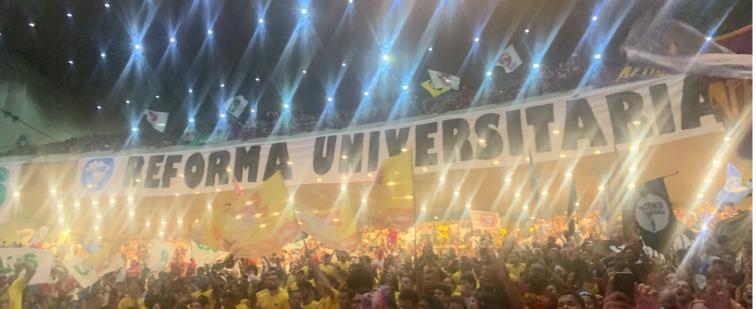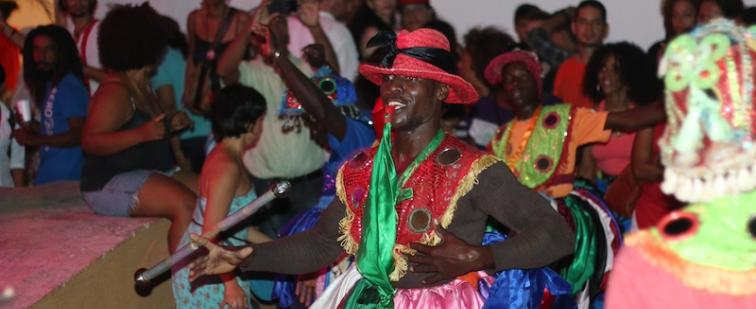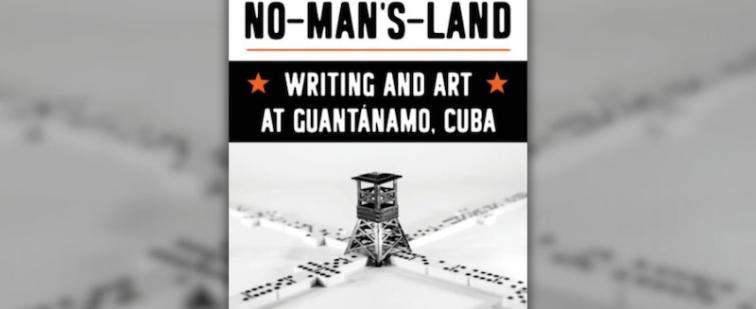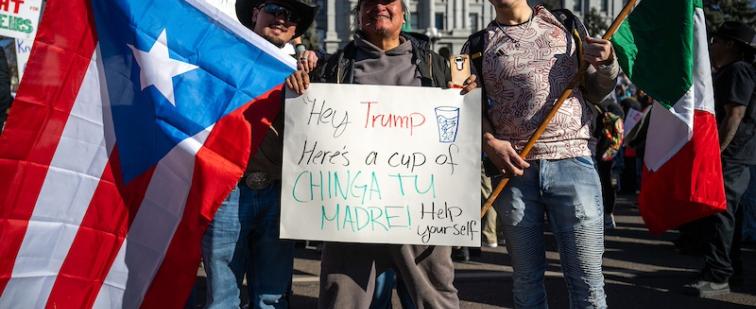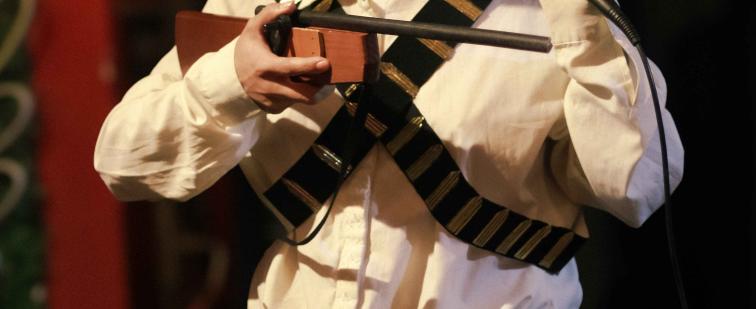Home
Cuadernos Colombianos
September 16, 2012
One of the core reasons why the civil war in Colombia has endured for so long is because the costs of peace for the dominant classes and the United States is more than the costs of war. Nevertheless, there are several issues that can assess the possibility of success of the process of a possible peace in Colombia.
Rebel Currents
September 13, 2012
Almost a year after resigning as Bolivia’s Defense Minister, Cecilia Chacón has broken her silence to question President Evo Morales’ appointment of ex-Interior Minister Sacha Llorenti as ambassador to the UN—an act which, she says, signifies impunity for those responsible for the police repression of lowland indigenous marchers last September 25 at Chaparina.
The Other Side of Paradise
September 13, 2012
What MINUSTAH’s near certain renewal on October 15 essentially means is another year of impunity for MINUSTAH, whose mandate entrusts them with the protection of the Haitian people on paper, but routinely and unapologetically violates their human rights in practice. Better options are available but are not considered. Why?
Border Wars
September 12, 2012
If you are a U.S. American Muslim crossing the international border into Michigan from Canada, be prepared for Customs and Border Protection officers to handcuff, detain, and interrogate you for perhaps two, but possibly ten, hours. The U.S.-Canada border is quickly becoming one of the hot spots of the post-9/11 homeland security era in the United States.
September 10, 2012
NACLA's presents its Fall 2012 Radio Podcast. Featuring content on the Paraguayan coup, the Mexican elections, and speeches from NACLA's 45th Anniversary Gala by Noam Chomsky, Javier Sicilia, and Mexican-American cartoonist Feggo. You can now also subscribe to NACLA Radio.
Manufacturing Contempt
September 5, 2012
When Ecuador granted asylum to Australian journalist Julian Assange in mid-August, and then, two weeks later, the United States provided asylum to Ecuadorian journalist Emilio Palacio, the two cases threw the hypocrisy of the establishment press into stark relief.
Border Wars
September 4, 2012
Over the last two decades, many countrys and NGOs have sounded a loud drumbeat against “human trafficking." In the name of protecting immigrant women and girls, the resulting practices ultimately increase the detection, detention, and deportation of migrants. As in the days of Chinese exclusion, anti-trafficking rhetoric leads to the proposterous suggestion that immigration controls are in the best interests of migrants.
Cuadernos Colombianos
September 2, 2012
The secret peace talks between the Santos government and the FARC are now out in the open. It is premature to anticipate the prospects, however they are the first talks since the collapse of the last peace negotiations in 2002. I believe that the chance for success is higher now than in the 1998–2002 round. Success is by no means guaranteed, but there may be some hope.
Rebel Currents
August 30, 2012
Five days past its official deadline and with less than half the communities polled, the consultation process on the Bolivian government’s proposed highway through the TIPNIS has ground to a halt amidst continuing controversy and local resistance. Meanwhile, tensions are mounting over the perceived militarization of the TIPNIS.
Border Wars
August 30, 2012
It’s a steamy, overcast monsoon morning in Nogales, Sonora, just across the border from the United States. I’ve come to learn more about what happens to Mexican deportees, many parents of children, who are left off by Immigration and Customs Enforcement (ICE) in downtown Nogales at two in the morning.

